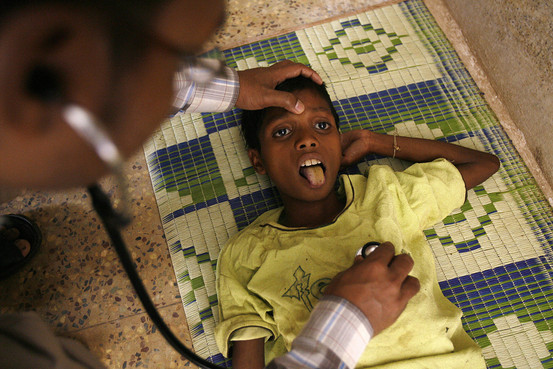Chanakya's_Chant
SENIOR MEMBER

- Joined
- Jul 22, 2013
- Messages
- 3,395
- Reaction score
- 28
- Country
- Location
Indian Vaccines help curb cholera outbreak in Haiti and Africa

Affordable option, easier to produce and transport
Cholera cases in Haiti, the Caribbean country in North America, were lower by 75 per cent in the first three months of 2014, as compared to the same period last year.
What helped curb the spread of the disease was an oral cholera vaccine, Shanchol, developed by Hyderabad-based Shantha Biotechnics, among other medications.
Given the promising results in Haiti, the idea of using cholera vaccines to counter the menace has received a boost. For some time now, health officials have been hesitant to embrace the new cholera vaccine in outbreak situations.
Recent trials
“The vaccines are considered too expensive. Health workers are of the opinion that it could require multiple doses.
“There is the logistics barrier, as also the belief that it provides limited protection.
“However, the recent vaccine trials have suggested that the campaigns are worth considering,” said an official at the Delhi office of Medecins Sans Frontieres (MSF), an international medical humanitarian organisation.
MSF set out to test the short-term effectiveness of two doses of Shanchol, made by Shantha Biotechnics, a subsidiary of Sanofi, for the first time in the Haiti outbreak.
The only World Health Organisation pre-qualified oral cholera vaccine is the double dose Swedish vaccine called Dukoral, which was also used.
Affordable option
The MSF official said the agency was tracking Shanchol's performance, “since it is much cheaper and has a low storage volume, which are important factors to make it easier to deploy across a wide area during a similar outbreak.”
He added that the World Health Organisation was stockpiling Shanchol for use in emergencies, “because it is a more affordable option, and is easier to produce and transport.”
Successful campaign
Early last year, Haiti started vaccinating its population with the vaccine made in India.
The first phase of the campaign targeted 50,000 people in Port-au-Prince, while another 50,000 were vaccinated in the Artibonite River valley.
A Boston-based non-government organisation, Partners in Health, had bought 2 lakh doses from Shantha Biotechnics.
Vaccine from India helps curb cholera cases in Haiti | Business Line
Vaccine from India helps curb cholera cases in Haiti
Indian vaccines cost less than half of its western alternatives!
The study was done by Epicentre, the research arm of Doctors Without Borders, and the Health Ministry of Guinea, during a large 2012 outbreak there. More than 316,000 doses were given out, and about 75 percent of the residents of cholera-affected areas got two doses, which is good coverage for an outbreak already underway.
Two vaccines have been stockpiled by the World Health Organization since 2013. But the older vaccine, Dukoral, made by a subsidiary of Johnson & Johnson, was invented mostly for the wealthy travel market.
Dukoral costs over $5 a dose and must be given with a glass of alkaline soda as a buffer against stomach acid. Carrying soda and clean cups slows vaccinators down.
Shanchol, which costs less than $2, comes in a vial smaller than an energy shot. It was developed with support from the Bill and Melinda Gates Foundation, and its maker, Shantha Biotechnics, has said that large orders could push the price below $1 a dose.
http://www.nytimes.com/2014/06/24/science/cholera-vaccine-africa.html?_r=0


